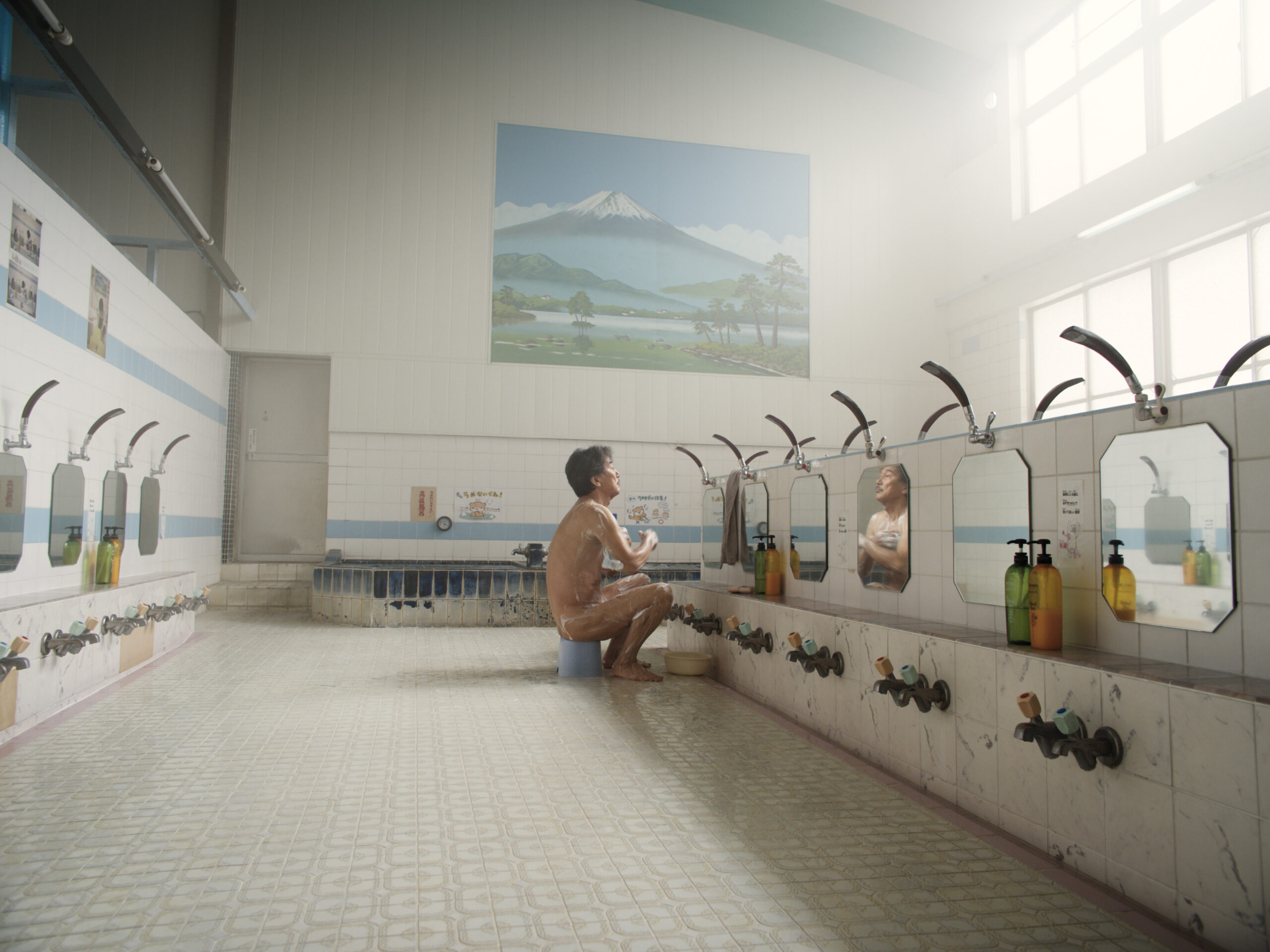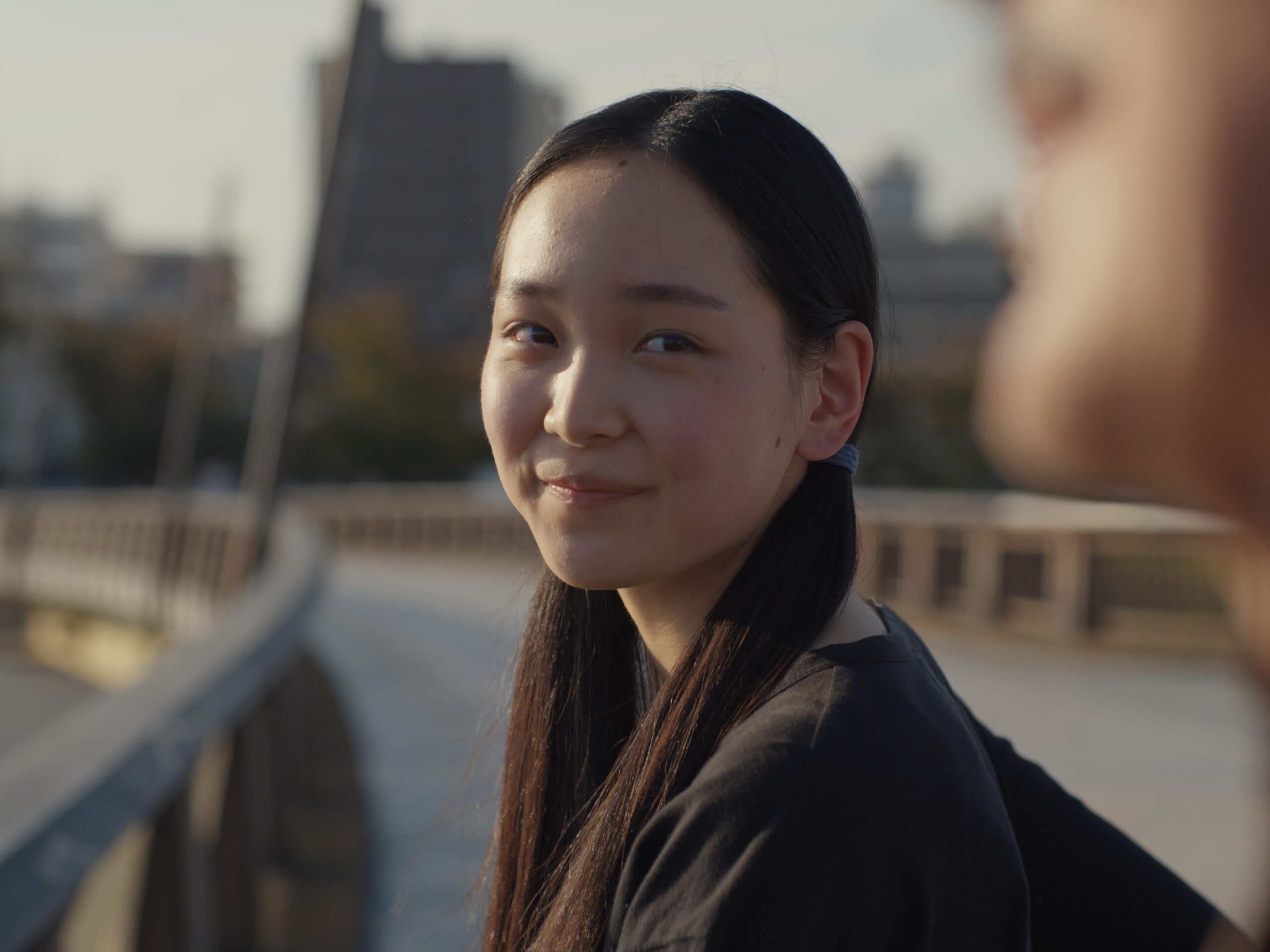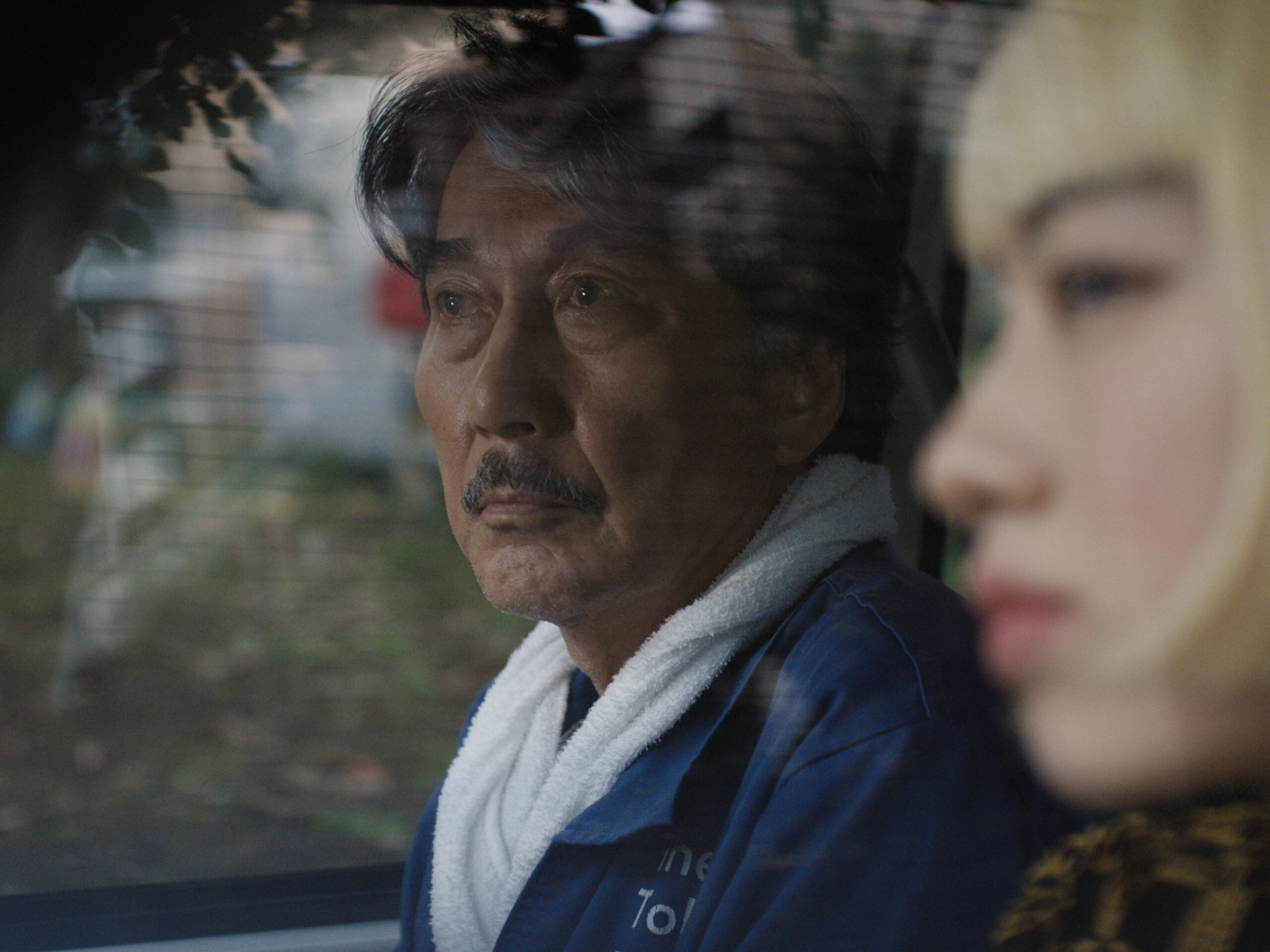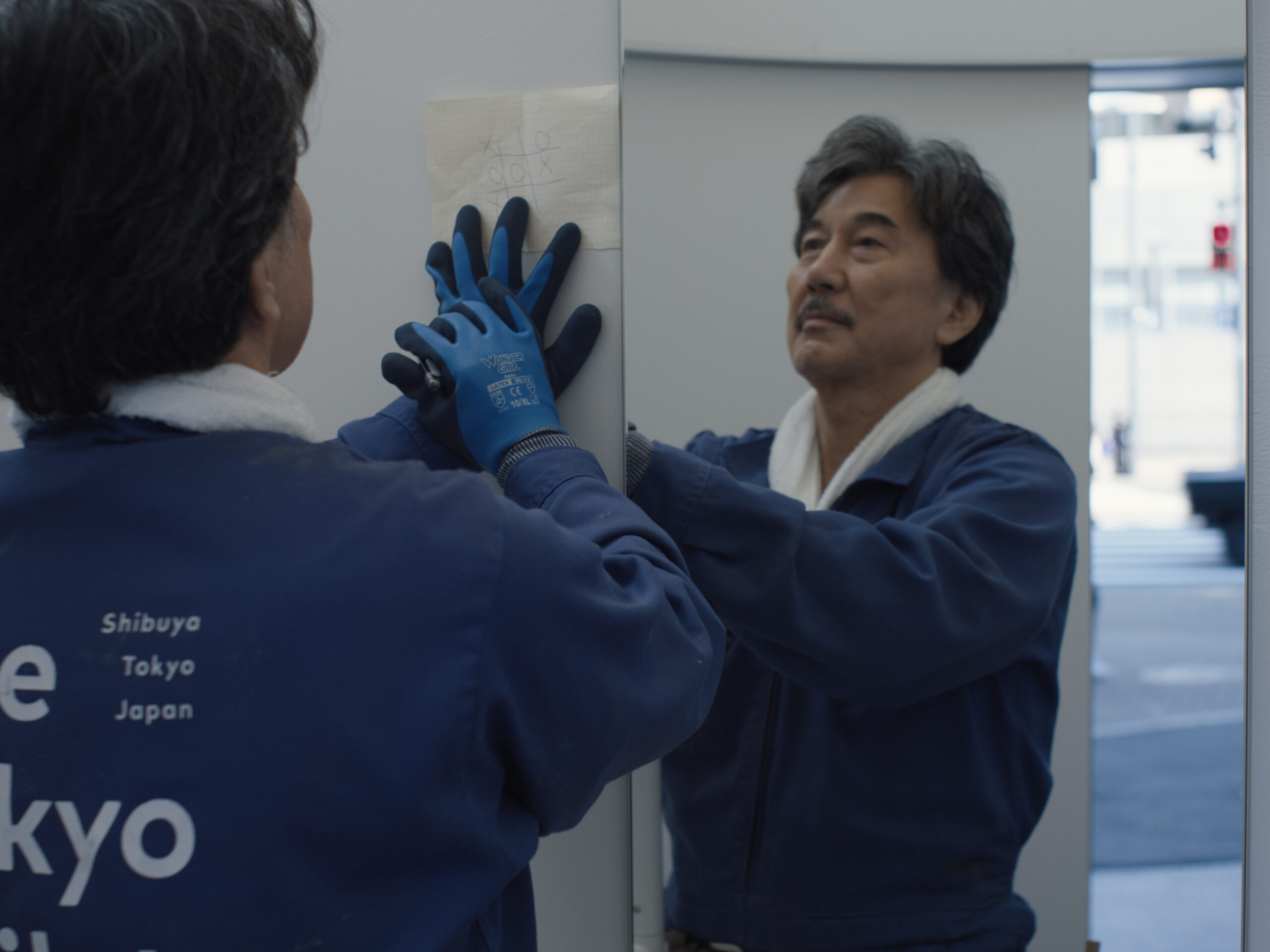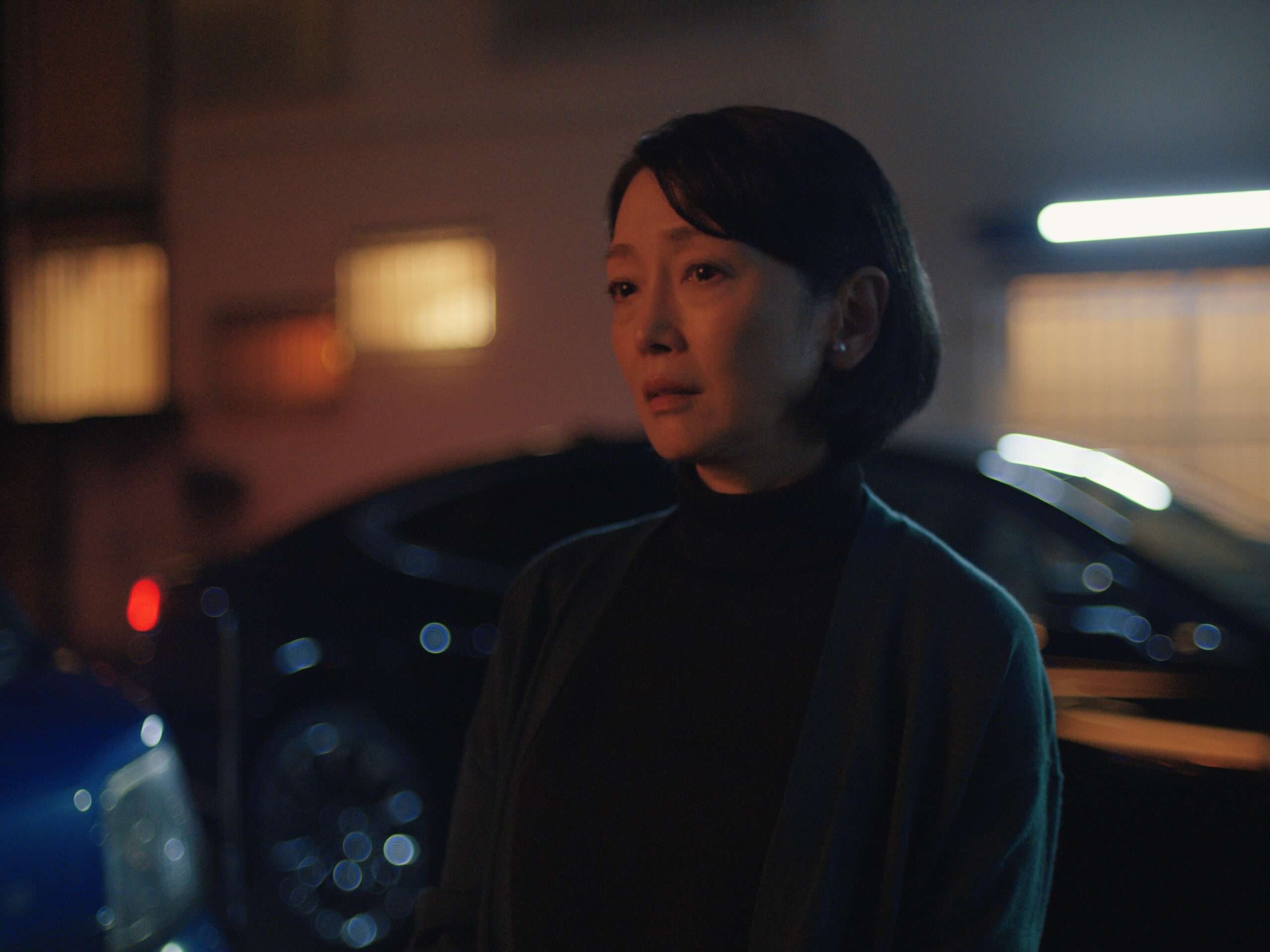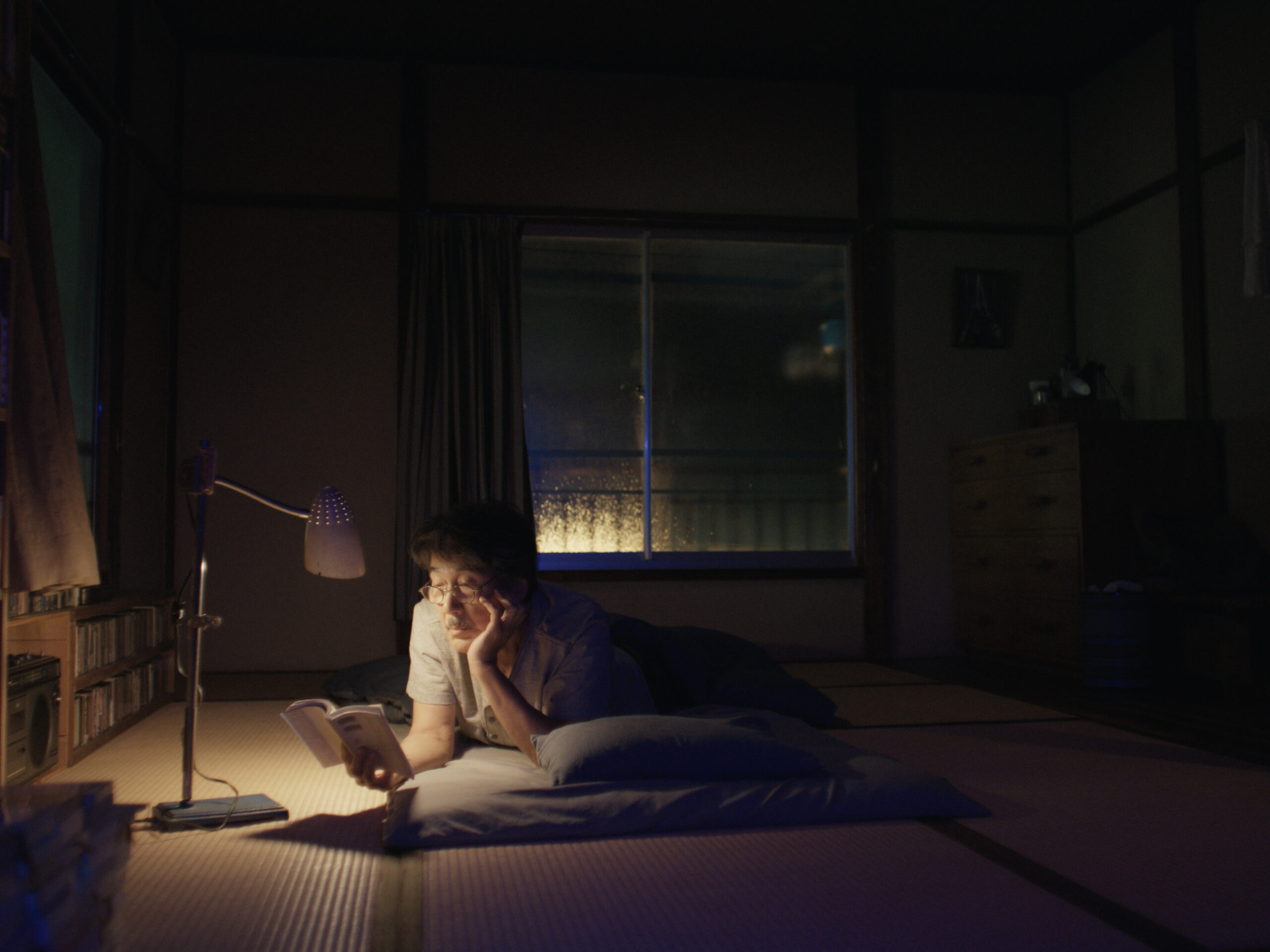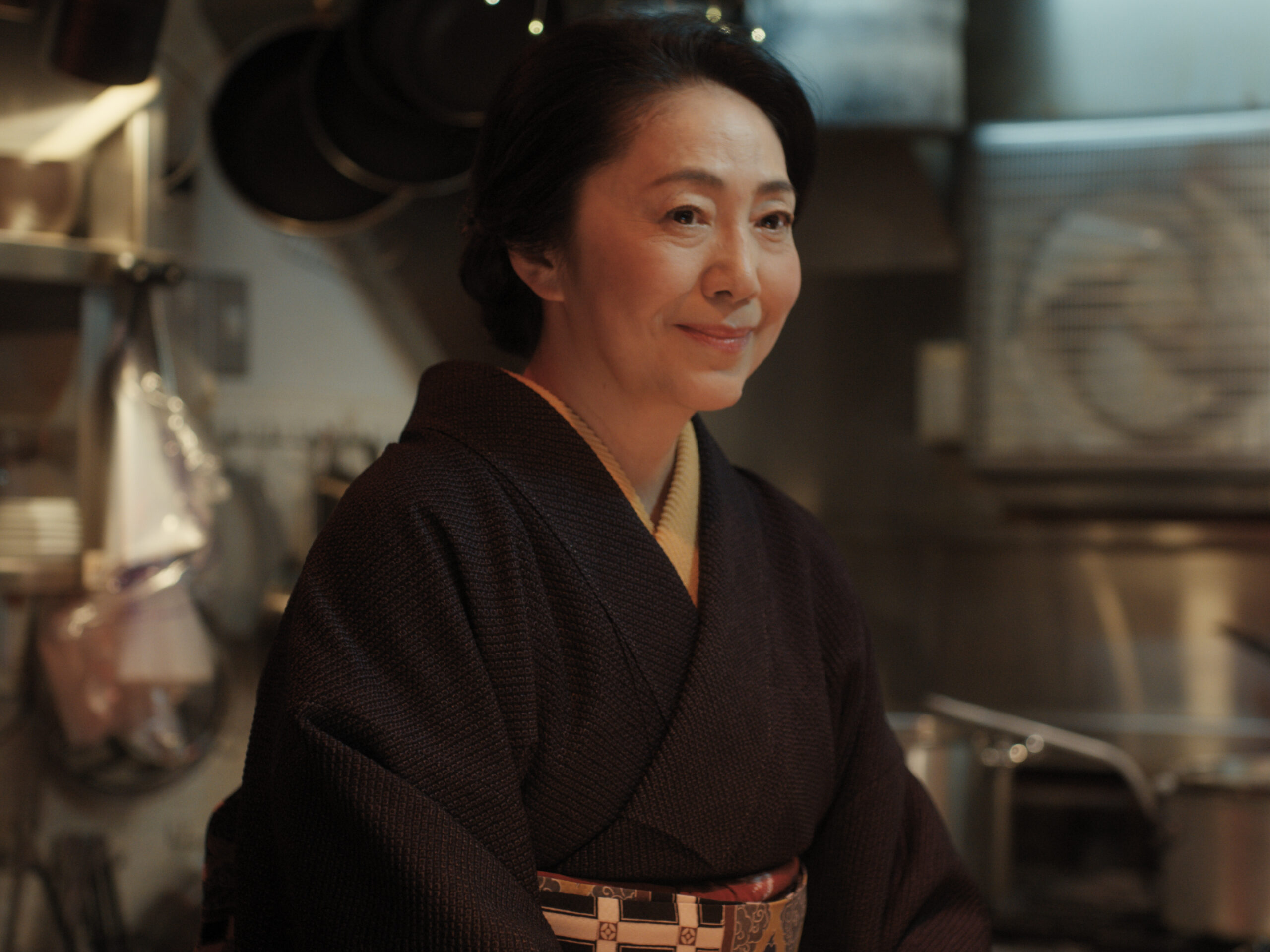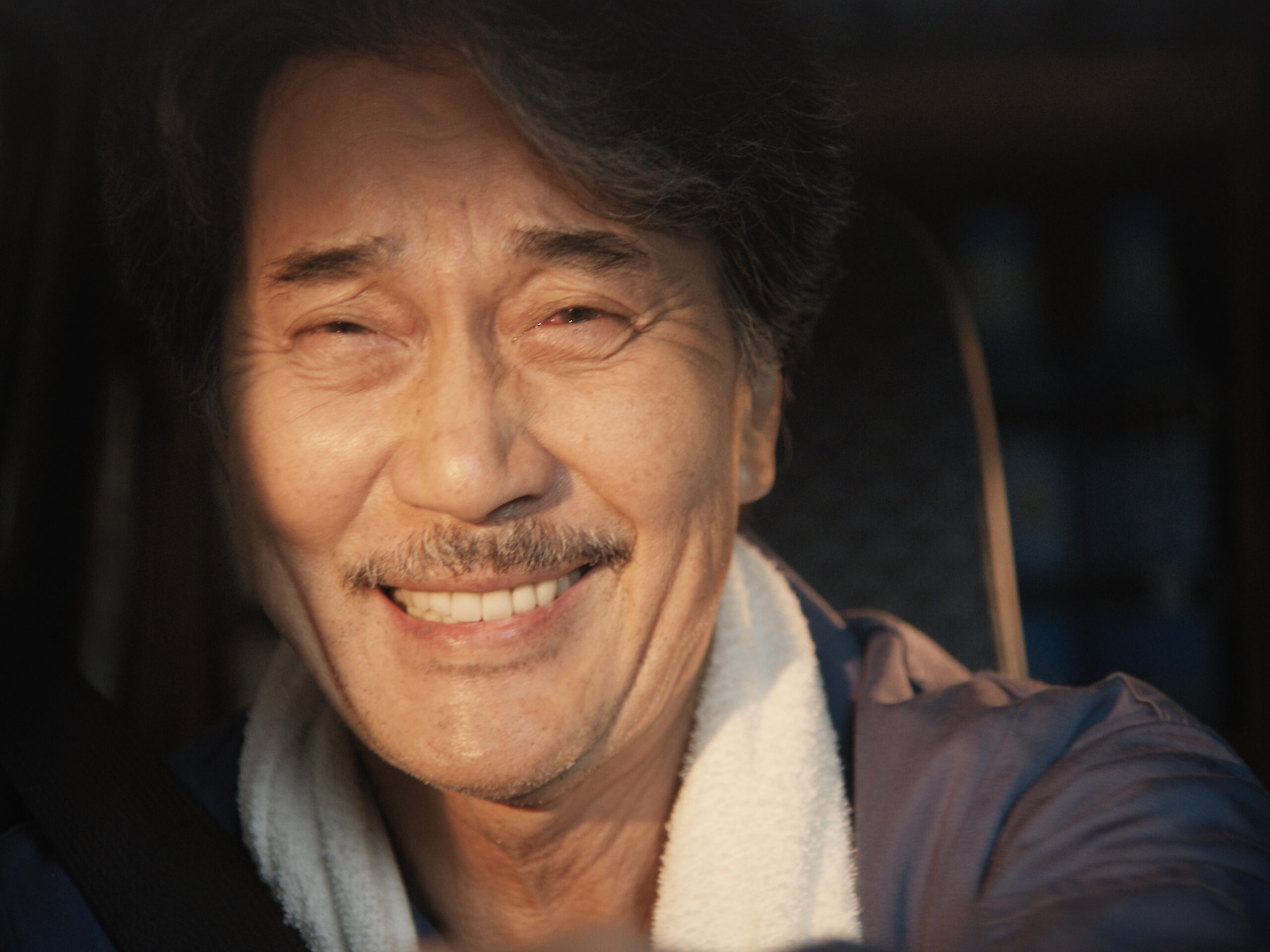The new film by Wim Wenders, co-written by the German director along with Takuma Takasaki, is ostensibly a bittersweet glimpse into the everyday life in Tokyo. The production stemmed from an initiative aimed at promoting fifteen public bathrooms designed by twenty contemporary architecture figures for the Olympics, which were postponed due to Covid-19. Wim Wenders utilizes this initial ambition to actually honor another aspect of Japan, namely a strong culture of respect and duty: respect for cleanliness, the environment, and strangers; but also for the common good, the relationship between servants and the served, one’s own privacy, and that of others. The full expression of his work, however, only emerges in the last lingering shot on the face of the protagonist, who oscillates between joy and melancholy: translated onto the screen by the director of photography Franz Lustig, the essence of Hirayama, played by Koji Yakusho, is that of a middle-aged man employed as a janitor for public bathrooms who moves serenely from one job to another towards Shibuya with his van, listening to classic rock and vintage pop on old-school audio cassettes – Patti Smith, the Kinks, the Velvet Underground, and Lou Reed, to name a few. Wenders, who in 1985 directed a film on Japanese subcultures titled Tokyo-Ga, boldly sets the tone of the film with the title Perfect Days, almost clichély emphasizing the philosophy of his protagonist: Hirayama lives a life of quiet and lovable solitude, one moment at a time. There are no flashbacks, no long explanations, no breaks. We never stray from Hirayama, and Hirayama himself never strays from being truly present in every single moment. Hirayama embodies the quintessence of Komorebi (木漏れ日), a japanese word describing sunlight shining through the leaves of trees, creating overlapping layers of light and darkness; a powerful metaphor for the central theme of this meditative cinema: a way to recognize and surrender to the invisible and transcendental beauty of the here and now.
The structure of the daily routine in Perfect Days becomes the backbone of the entire project. Throughout the film, the camera captures the protagonist doing the same things repeatedly: Wenders employed a documentary approach to create Hirayama, a subtle reminder that we are alongside this character at every moment of his life–in every Lou Reed song, in every bathroom he cleans, in every meal he consumes, in every moment of solitude with evening readings of Faulkner under the light of a small lamp before sleeping–yet nothing about him is ever truly concretized because details of his personal history are not necessary to recognize the humanity of the character. However, Hirayama remains an imperfect hero, and Wenders refrains from judging his lifestyle. We simply follow the adventures (or lack thereof) of his life until he is presented with a choice: continue living by stretching time, savoring perfect days of quiet solitude, or embrace a romantic adventure, reunite with his family, and make new friends along the Sumida River. Hirayama is torn between the satisfaction of a simple, ego-free life and the potential for a happiness that becomes greater and more complex when shared with other human beings, or even transmitted. This internal conflict reflects a deeply human sentiment: melancholy, a union between the poetic contemplation of our existence and the realization that presence does not imply bliss, infinite harmony, or peace. Hirayama decides to confront all these emotions in the moment; they remain a part of him but do not dictate the direction of his life in the future, aware of the powerlessness against the time that defines our lives.
“At a certain point in his life, Hirayama decided to leave a condition of extreme privilege for a simple life, cleaning toilets, and he does it with pleasure; he is happy. He lives modestly as a service person, invisible to others, but he sees everything. The routine is not a burden for him; instead, it gives him a lot of freedom. In our lives, the term ‘routine’ often carries a negative connotation, but he experiences it as a ritual, and each time he performs it as if it were the first.”
